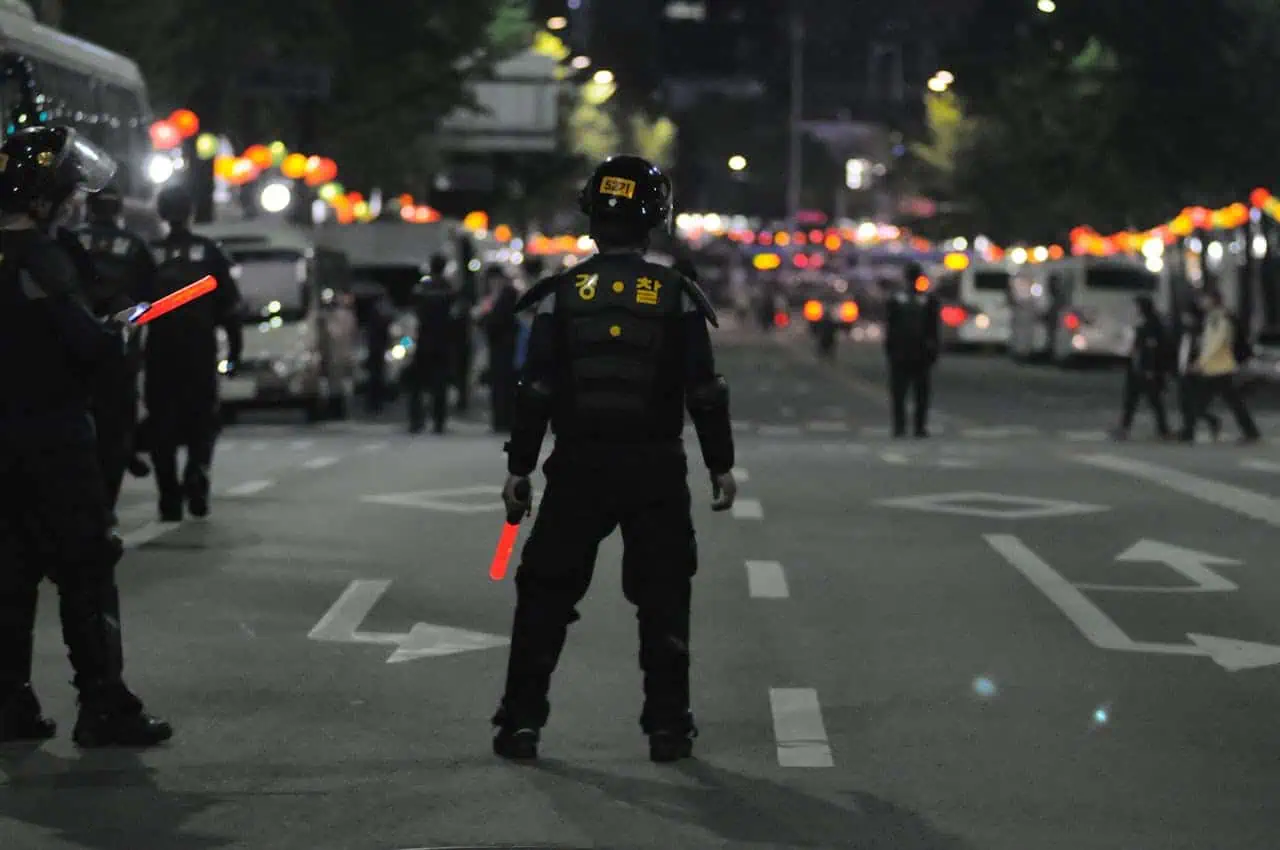Introduction
A career as a security officer is demanding, challenging, and rewarding. With experience in the field, a security officer not only learns how to handle various situations efficiently but also becomes a trusted protector of the workplace. For those working Monday to Friday, this role offers both professional satisfaction and a manageable work-life balance, appealing to many who seek stability. This guide explores what it means to be an experienced security officer with a weekday schedule, focusing on responsibilities, necessary skills, and career development.
Core Responsibilities of a Security Officer (Monday to Friday)
Security officers are essential to ensuring safety in public and private spaces. Their main tasks involve regular surveillance, access control, and emergency response. Let’s break down their core responsibilities:
- Routine Patrols and Surveillance: Experienced security officers conduct routine checks with precision. Their patrols often cover the entire premises to prevent theft, vandalism, or other incidents. With experience, they can detect unusual behavior or potential security threats quickly.
- Access Control: Controlling who enters and exits a building is crucial to maintaining security. Security officers manage entry points, verify credentials, and enforce access policies, ensuring only authorized personnel are allowed in specific areas.
- Emergency Response Preparedness: Whether it’s a medical emergency, fire, or security breach, an experienced officer is ready to respond. Their years in the field enhance their ability to assess situations swiftly, prioritize actions, and coordinate with emergency services if necessary.
- Customer and Employee Safety: Beyond securing property, security officers maintain a sense of safety for employees and visitors. They serve as a visible deterrent to potential threats and create a welcoming atmosphere with their presence.
- Incident Reporting and Documentation: A critical part of the role is documentation. Security officers log incidents, keep records, and submit detailed reports to management. This record-keeping is essential for insurance claims, legal matters, and assessing potential improvements to security protocols.
Key Skills and Qualifications of an Experienced Security Officer
Experienced security officers possess a unique skill set that combines technical knowledge, physical fitness, and strong ethical standards. These skills set them apart from newcomers to the field:
- Observation and Attention to Detail: The ability to observe surroundings closely and spot subtle signs of trouble is invaluable. Experienced officers have honed this skill to catch potential security breaches early.
- Technical Skills with Security Systems: Familiarity with security technology, like surveillance cameras and alarm systems, is critical. With experience, officers stay updated on technology advancements, which can increase their effectiveness.
- Strong Communication Skills: Security officers need to communicate effectively to report incidents, coordinate with emergency services, and address public inquiries. Clear communication helps avoid misunderstandings in high-stress situations.
- Physical Fitness and Stamina: Many security roles involve standing, walking, or responding quickly to incidents. Physical fitness supports an officer’s ability to handle potentially intense situations, enhancing their performance.
- Problem-Solving Abilities: Quick thinking and decisive action are key when emergencies arise. Experienced officers are often better prepared to make rapid, effective decisions under pressure.
- Integrity and Ethical Standards: Security officers are entrusted with maintaining the safety and integrity of their environment. Honesty and reliability are paramount, as they may handle sensitive situations or have access to confidential information.
Typical Schedule and Duties Breakdown
For security officers working a Monday-to-Friday schedule, predictability can help both personal and professional life. Here’s a glimpse into a typical day and week:
- Daily Routine Tasks:
- Morning: The officer begins with a shift briefing, checking security cameras, and making initial rounds of the premises.
- Midday: Activities may include observing the surroundings, ensuring all visitors follow protocols, and maintaining access control.
- Afternoon: Before the shift ends, the officer completes final checks and prepares end-of-day reports, sharing information with the next shift or preparing for weekend security protocols.
- Weekly and Monthly Duties: More complex tasks, like comprehensive safety assessments, are often scheduled on a weekly or monthly basis. Experienced officers may conduct full-scale reviews of security procedures and adjust their approach based on recent incidents or risks.
Challenges Faced by Security Officers and How Experience Helps
Every day as a security officer can bring unique challenges. However, experience allows seasoned officers to handle these with greater ease.
- Handling Difficult Individuals: Experienced officers are often more confident in managing confrontational or non-compliant individuals, using de-escalation techniques to maintain calm and order.
- Staying Alert During Routine Shifts: A predictable environment can lead to complacency, but experienced officers know how to maintain their vigilance through mental checklists, frequent changes in patrol patterns, and awareness exercises.
- Dealing with Stress and Fatigue: The mental and physical demands of the job can be taxing, especially in high-risk environments. Experienced officers learn to pace themselves, take advantage of breaks, and practice self-care to remain effective on the job.
- Keeping Up with Security Protocol Changes: Security procedures and protocols often evolve. Experienced officers regularly undergo training to stay informed, ensuring they can adapt to new challenges swiftly.
Career Advancement and Certifications for Security Officers
Many experienced security officers seek additional certifications to advance in their careers, increase their responsibilities, or specialize in areas like corporate security or cybersecurity.
- Certifications and Training Programs:
- Common certifications include the Certified Protection Professional (CPP) and the Physical Security Professional (PSP) credentials. These certifications cover advanced security management topics, signaling higher proficiency.
- Pathways to Higher Roles: With years of experience, officers can progress to supervisory roles, security management, or specialized security positions in corporate or government sectors.
- Benefits of Continued Education and Experience: Continued learning and training keep security officers at the top of their field. As they gain experience and develop new skills, they become more valuable to employers, opening doors to better pay and career growth.
Also read: 602-671-3998: Who’s Calling? A Comprehensive Guide to Identifying Unknown Callers
Benefits of Hiring an Experienced Security Officer for Organizations
Organizations benefit significantly from hiring experienced security officers:
- Reliability and Reduced Turnover: Experienced officers often have greater job stability, leading to lower turnover rates and consistent security coverage.
- Enhanced Security Protocol Adherence: Years in the field mean they understand and enforce security policies rigorously, reducing the risk of incidents.
- Improved Crisis Management: When an emergency arises, experienced officers are prepared. Their ability to remain calm and follow protocol minimizes potential damage.
- Reputation for Professionalism: An experienced officer brings professionalism that enhances the organization’s reputation, reflecting positively on management and contributing to a secure environment.
Insights on Work-Life Balance in a Monday-to-Friday Security Role
A weekday schedule offers a structured routine that’s rare in many security roles, which often require weekend and overnight shifts. Security officers working Monday through Friday enjoy a better work-life balance, allowing them time with family and friends.
- Weekend Handover Procedures: Many Monday-to-Friday officers have set protocols to transition security duties to weekend personnel. This may involve briefings, additional documentation, or system adjustments to maintain continuous protection.
Frequently Asked Questions (FAQs)
- What are the main responsibilities of a security officer? Security officers patrol, manage access, respond to emergencies, and report incidents to maintain a safe environment.
- How does one become a security officer with advanced certifications? Certification programs like CPP and PSP offer advanced training and are open to officers with significant experience.
- What are the biggest challenges faced in this role? Challenges include managing stress, handling confrontational situations, and staying vigilant in routine settings.
- How can experience impact career progression in security? Experience opens doors to higher-level roles, increased pay, and specialized positions within security.
- Why is a Monday-to-Friday schedule significant for security officers? It provides a predictable routine, supporting a balanced lifestyle and reducing the need for irregular shifts.
Conclusion: The Value of Experience in Security
Experienced security officers bring reliability, strong ethics, and valuable skills to any workplace. Their dedication ensures that employees and visitors feel safe, creating a secure and welcoming environment. For anyone interested in a security career, the path of gaining experience and certifications offers both stability and the potential for growth, making this field a fulfilling and respected profession.


